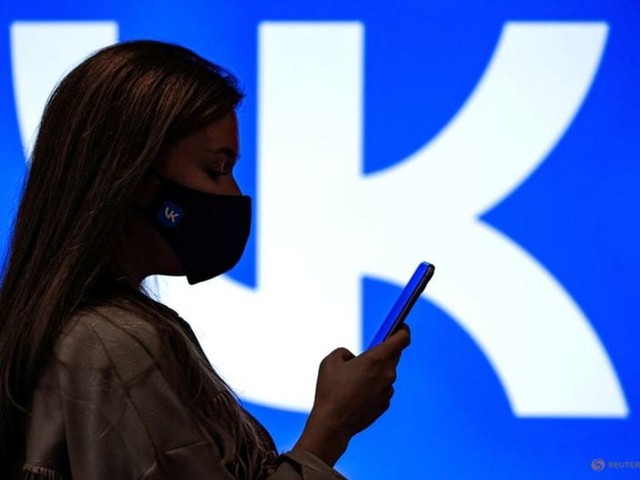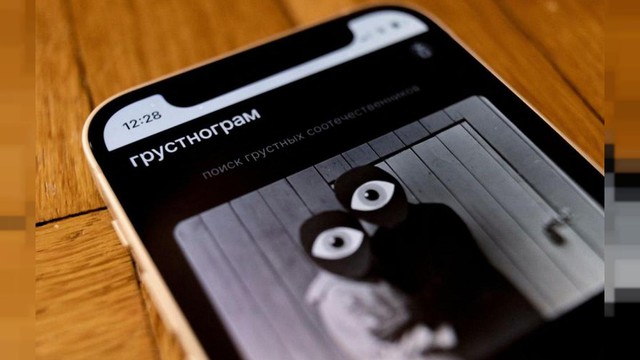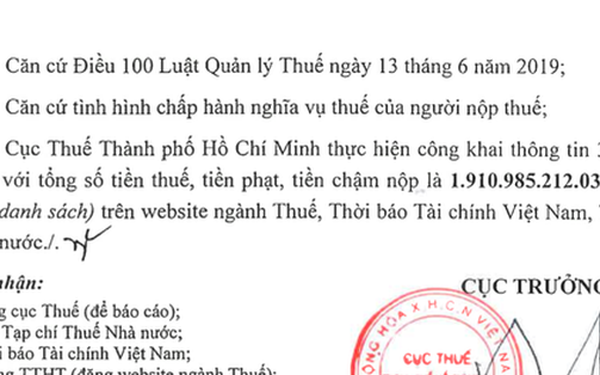Has the opportunity of the Russians ‘technological self-reliance’ come?
Russia has blocked access to Twitter and two of Meta’s Facebook and Instagram applications since conducting a special military operation in Ukraine. The persistent dispute between Russia and Big Tech escalated into a battle to control the flow of information here.
The wave of withdrawal of Western technology firms and the strong ban of the Russian authorities have opened the door for domestic players, in which, VK – the corporation behind VKontakte, the most popular social network in the country – is the flagship. On May 30, the company published detailed instructions for businesses that want to “migrate” to other platforms.
Seen as Russia’s answer to Facebook, Vkontakte has more than 50 million daily users and reaches 80% of monthly Internet subscribers. Meanwhile, as of 2021, Facebook has only 7.5 million users in Russia, according to estimates by research firm Insider Intelligence.

| An employee of VKontakte at the company’s headquarters in Moscow, Russia. (Photo: Reuters) |
According to VKontakte, more than 585,000 new business owners created their own communities on the platform in March, from hair salons to clothing stores. VKontakte also recorded a record amount of activity since February 24. Monitoring company Brand Analytics found that content on this social network increased by 11% between February 24 and March 24. During the same period, the amount of Russian-language content posted on Twitter, Facebook and Instagram decreased by 5%, 16% and 30% respectively.
VKontakte makes money from advertising, application developer commissions and user payments. The platform contributes more than a fifth of VK’s revenue of 125.8 billion rubles ($1.5 billion) in 2021. VK’s other businesses include providing the mail.ru domain name, MY.Games games and educational technology.
Anton Gorelkin, a member of the Russian State Duma on information and communication, commented: “The domestic interactive services market has a great opportunity to show its potential to the audience.”
The role of Gazprom
According to Reuters, although there is no direct policy to replace foreign social networks, the Russian government promises tax incentives and preferential loans to domestic IT businesses, while employees can deferred military service. Politicians also encourage people to switch to domestic suppliers.
The government can also play an indirect role in the future of domestic technology through a series of complex investments involving energy giant Gazprom and its communications division. In December 2021, Gazprom Media bought the majority of VK’s voting rights. At the end of 2020, the company also acquired RuTube, a video platform similar to YouTube.
Russian news agency TASS reported that RuTube’s weekly user count increased 5.5 times in early March. The number is likely to be even higher as YouTube is under great pressure from Russia’s telecommunications regulator Roskomnadzor and against face similar fate Facebook, Instagram, Twitter.
However, according to critics, RuTube is far from competing with Google’s baby. As of the end of December 2021, RuTube’s monthly unique users were 17.7 million, much lower than the 89.5 million YouTube users in Russia in January 2022, according to Mediascope. It also lacks the recommendation algorithms that make YouTube famous. Overall, RuTube cannot keep up with the competition in terms of service quality and speed.
VKontakte insists that all products undergo “rigorous testing” before being released. The company updated 230 times to enhance the user experience last year.
New faces
 |
| Sadgram interface. (Photo: Reuters) |
Recently, a number of new services have appeared to replace TikTok or Instagram. Gazprom Media introduced Yappy in November 2021, competing with TikTok. Since the war in Ukraine broke out, TikTok has paused its livestream feature and downloaded new videos in Russia. As of March 27, about 3.2 million Russians have installed Yappy, compared with TikTok’s more than 10 million, according to app tracker Sensor Tower.
Rossgram, a platform similar to Instagram in terms of name, design and color, was scheduled to launch this week, but has not been successful. The founders have only posted videos of the Rossgram prototype.
Other developers have released Grustnogram (or Sadgram in English), a sad, black-and-white version for Russian users. An alternative app marketplace to Google Play is also under development.
Another app that is actively promoted by politicians these days is Telegram. Telegram founder Pavel Durov is also the brain behind VKontakte. Telegram currently has more than 500 million global users and is extremely popular in Russia with more than 67 million users. The platform will benefit if people withdraw from WhatsApp. So far, WhatsApp is still working normally here.
at Blogtuan.info – Source: cafebiz.vn – Read the original article here



